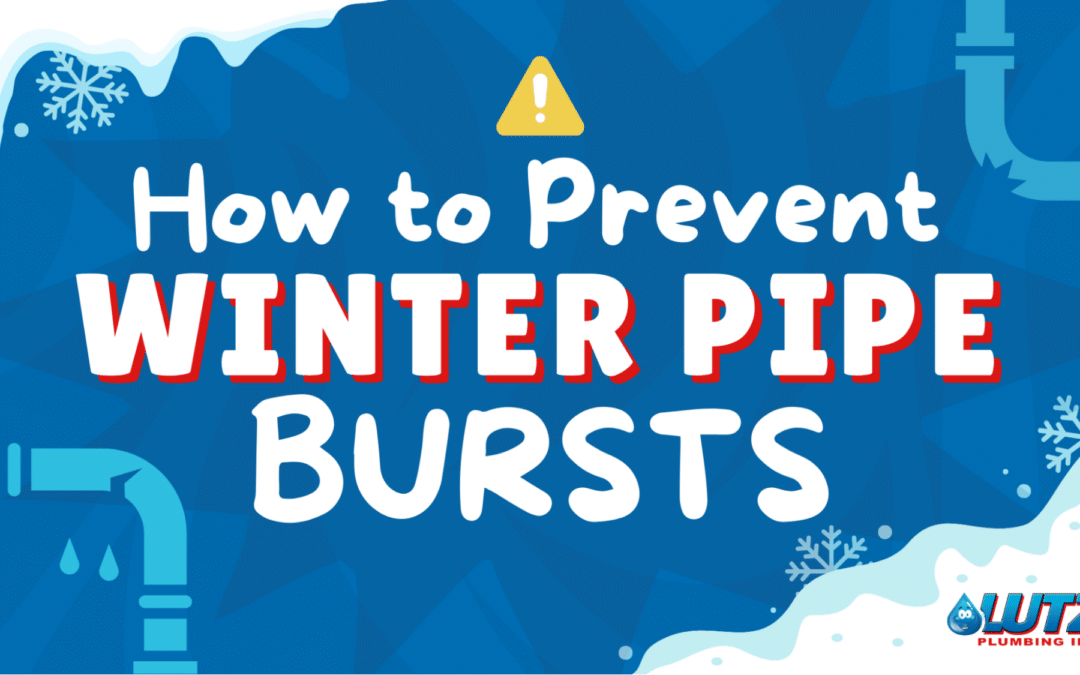The winter is not only cold for us, but it is cold for our homes and businesses, too. The freezing temperatures can have a significant impact on our plumbing, causing pipe breakage and other plumbing problems. Staying on top of your home’s or business’s plumbing is extremely important to ensure you are correctly maintaining and protecting the pipes.
Fortunately, proper plumbing preparation and maintenance are easily obtainable and can be implemented into your lifestyle without many hiccups.
Why Would a Pipe Burst?
There are a handful of reasons why a pipe might burst, but a significant few happen more often.
Freezing Temperatures
Water expands as it freezes, increasing the pressure inside the pipe. If the pipe is not properly maintained, it can burst.
High Water Pressure
If your pipes are under excessive pressure, you might be causing unnecessary stress, which can rupture the pipes.
Corrosion and Aging
Pipes weaken over time due to rust or wear and tear. It is essential to maintain your pipes and be cautious about their lifespan.
Poor Installation
Unfortunately, poor installation is common and can lead to increased vulnerabilities within your pipes. If this is the case, a pipe burst is possible.
Blockages
If there are clogs within your pipes, there will be an increase in pressure, which can lead to a pipe bursting. It’s essential to be aware of what goes in your pipes.
The Damage That a Burst Pipe Can Cause
The possible damage from a burst pipe can vary depending on when it happened, where it happened, and how damaging the burst was. However, no matter the answer, a burst pipe should be repaired as soon as possible to ensure no further issues arise.
A burst pipe has the possibility of leading to flooding in the area it is in. If a pipe bursts in the basement, you will likely find water pooling on the ground. This could then lead to structural damage as water will lead to weakened floors, ceilings, and walls. It’s essential to get the water cleaned up and maintained between the burst and when it is fixed to ensure you are not causing possible damage to the rest of your home or business.
Excess water in the structure can also lead to mold. The moisture can be a breeding ground for mold, leading to worse air quality and possible health hazards if it is not fixed quickly. The longer it takes to get the burst pipe fixed, the more damage the water could cause.
The Best Ways to Prevent a Burst Pipe During the Winter
Thankfully, a burst pipe is not inevitable. You can conduct safe plumbing practices to ensure that you are properly protecting your pipes from potential hazards.
Insulate Pipes
- Wrap foam insulation around exposed pipes in unheated areas.
- Pay special attention to outdoor faucets and pipes in basements or attics.
Maintain a Consistent Indoor Temperature
- Set your thermostat to at least 55°F, even when you’re away.
- Open cabinet doors under sinks to allow warm air circulation.
Drip Faucets in Freezing Weather
- Keep a small trickle of water flowing to prevent freezing.
- Focus on faucets connected to exposed pipes.
Install a Pressure Regulator
- Test water pressure regularly with a pressure gauge.
- Ensure the pressure stays between 40 and 60 psi.
Winterize Outdoor Plumbing
- Disconnect and drain garden hoses.
- Use faucet covers for added protection.
- Drain and blow out sprinkler systems before the first frost.
Replace Aging Pipes
- Upgrade old pipes.
- Consult a plumber to assess and prioritize replacements.
Practice Plumbing Safety Every Season
Temperature changes pose unique challenges to the pipes in our homes and businesses. Whether in the negatives or heating up for the summer, we must be aware of the safety of our pipes and plumbing systems.
Starting in the summer and spring, it is essential to take this time to assess for possible damages that occurred during the winter months. You want to find any damages as soon as possible so they do not get worse. Additionally, you should clean your gutters and downspouts to prevent any blockages or clogs.
The fall season is the perfect time to start to winterize your outdoor plumbing before the first frost. This is when you want to insulate your pipes and prepare outdoor plumbing for the cold temperatures. During the winter, keep these habits up and try to monitor your pipes to ensure nothing goes amiss.
Get Your Plumbing Regularly Inspected
Regularly scheduling plumbing inspections is the best way to prevent a pipe burst. Bringing in a professional plumber can not only help repair and fix current issues but also point out potential problems and provide guidance and expertise on what to do about them. An expert plumber can help you stay proactive in your plumbing and keep your pipes safe and appropriately monitored. Scheduling a yearly inspection is essential for everyone, but scheduling a plumbing inspection before the winter season can ensure you are going into the colder temperatures ready and safe. Your plumbing health will thank you.
If you have further questions or wish to schedule a plumbing inspection, contact the team at Lutz Plumbing.

